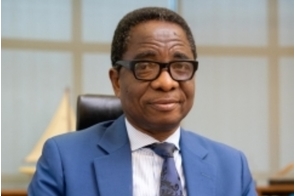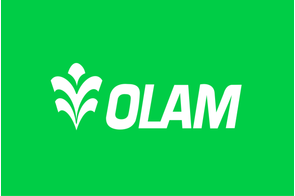Latest News
Wärtsilä to modernise power generation of Nigerian Flour Mills

News Highlight
The multi-fuel capability of the Wärtsilä engines can switch seamlessly from natural gas to liquid fuel mode while running at full load.
The smart technology group, Wärtsilä, has announced its engagement to supply fuel-flexible dual-fuel engines to extend, improve, and modernise power generation for a captive power plant at Nigeria’s oldest and largest food and agro-allied company, Flour Mills of Nigeria Plc (Flour Mills).
The Lagos-based power plant of Flour Mills is needed to ensure sufficient capacity and a reliable electricity supply around the clock to meet the company’s food production requirements, and commitments to its customers, Wärtsilä said in a statement it sent to Financial Nigeria.
In March 2021, Wärtsilä was contracted to deliver its 9-cylinder 34DF dual-fuel engine generator set and is an extension to the existing generating capacity provided by a similar Wärtsilä engine generator set that has been successfully operating since 2017. Later in June, Flour Mills also ordered a 12-cylinder Wärtsilä 34DF engine generator set and is intended to replace an existing inefficient mono-fuel generating asset in the plant with efficient dual-fuel generating capacity as part of Flour Mills Nigeria’s captive power plant modernisation plans. The new generator sets will be delivered during 2021 and are expected to become fully operational in early 2022.
The multi-fuel capability of the Wärtsilä engines, which can switch seamlessly from natural gas to liquid fuel mode while running at full load, facilitates continuous supply of electricity to critical loads in the event of uncertainties in the quality and quantity of the gas supply. In addition to maximising the availability and reliability, this inherent capability provides a valuable hedge against fuel price increases and lends itself to accommodating future fuel infrastructure developments.
“It is always gratifying to receive repeat orders from a customer, not only because it signifies their satisfaction with our solution, but also because it cements the relationship between our companies,” said Marc Thiriet, Energy Business Director, Africa West, Wärtsilä. “Operational flexibility and efficiency, which are features of the Wärtsilä engines, are becoming key issues in energy production, and are especially relevant for production facilities with a critical need for a reliable electricity supply.
The Nigerian government’s 30-30-30 vision document for the power sector aims to achieve a capacity of 30,000 megawatts of electricity by the year 2030, with at least 30 percent being supplied from renewable energy sources. The selection of fast-starting and stopping Wärtsilä engines means that should the customer have access to solar or wind power in the future, these engine generator sets can provide smart back-up generation to balance the fluctuating supply from the renewables.
Wärtsilä has a leading position in supplying flexible power generation to West Africa with 4792 MW of capacity installed, of which 667 MW in Nigeria. Wärtsilä has operated in the country since 2010 and has about 90 employees locally. In 2020, Wärtsilä's net sales totalled EUR 4.6 billion with approximately 18,000 employees. The company has operations in over 200 locations in more than 70 countries around the world. Wärtsilä is listed on Nasdaq Helsinki.
Related News
Latest Blogs
- Access Bank as a catalyst for change
- The case for EVs in Nigeria
- A call for non-judicial resolution of erroneous bank transfers
- Despatches from the US on democracy
- The 2024 U.S. election and Nigeria
Most Popular News
- Africa’s automobile sales to double by 2027, says IHS
- Artificial intelligence can help to reduce youth unemployment in Africa – ...
- Crude oil trades below benchmark price for Nigeria’s 2025 budget
- AI stock trade shifting beyond the 'Magnificent 7'
- Services led global trade growth in 2024
- Labour budget sparks interest in wealth transfer out of the UK – survey







